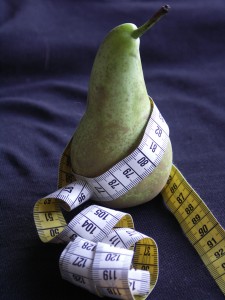
When it comes to New Year’s resolutions, dieting always tops the list. Weeks of festive over-indulgence means that fad diets see a massive spike in January, only for them to fade away somewhere around mid-February. Here are five to avoid this new year if you’re looking to stay healthy in the long term.
The 5:2 Diet
So called because of the how the diet is broken down over a week, the 5:2 diet recommends five days of ordinary eating and two days of ‘fasting’ (500 calories or less). The jury is still out on whether the diet is either damaging or beneficial to your health, though some early studies suggest it can help ward off certain cancers, as well as other diseases such as diabetes.
It’s pretty impractical however, as concentration and energy are sapped enormously on fasting days, meaning lower productivity and almost no desire to exercise. Aside from this, if you don’t improve your diet on those 5 ‘ordinary’ days, getting healthy is always going to be an uphill struggle.
The Breatharian Diet
Blurring the lines between diet regimen and cult, proponents of Breatharianism believe that they can survive on air and sunlight alone, completely negating the need for food to survive. On the plus side, the diet certainly works, with most adherents, not surprisingly, registering pretty impressive weight loss. The downside is a whole range of health problems associated with starving yourself, and, if you fail to realise soon enough that it’s based on complete quackery, certain death.
One of Breatharianism’s greatest advocates is American Wiley Brooks. Brooks, who claims to have had past lives as Adam, Zeus, Shah Jahan and Francis of Assisi, recommends McDonald’s to those struggling to maintain themselves on air alone. Though fruit and vegetables are regarded as dangerous, Brooks claims that all McDonald’s burgers are “protected by 5th Dimensional high energy/spiritual portals” and that Breatharian dieters can eat as much as they want. If you need further guidance, you can always sign up for one of Brooks’ 2 week ‘immortality workshops’, costing a cool million dollars a pop. Not the cheapest way to kick-start your New Year’s diet regime.
The Bible Diet
The Daniel Plan’s main endorser, himself an overweight Evangelical pastor, may not be the best poster boy for the campaign. However, this faith-based diet is making big waves in the U.S., and the is being taken up by Christians all over the country.
Pastor Rick Warren has mined the Bible for nutritional advice, and in the book of Daniel has found what he calls an “owner’s manual for your body”: more fresh fruit and vegetables, and less fat. Hardly revolutionary stuff, but good advice nonetheless. Now all you’ve got to do is shell out for the whole range of books, planners and CDs to guide you through your new eating plan. The same basic advice is available from your doctor for free.
The Paleo Diet
The Paleo Diet is a simple concept: eat as close as possible to the way our ancestors did 10,000 years ago. Based on the assumption that our digestive systems haven’t had time to evolve quickly enough to handle modern processed food, the diet relies on large amounts of grass-fed meat and fresh fish, as well as plenty of fruit and vegetables.
There are a few holes however. Firstly, cavemen would only rarely have had access to hunted meat, having a much higher percentage of plant-based foods in their diet than many dieters realise. Indeed, they would often have found it difficult to source food of any kind during times of hardship – hardly a realistic proposition for modern dieters.
Secondly, many healthy fruits and vegetables (including broccoli and strawberries) did not exist 10,000 years ago, meaning strict adherents to this diet would be forced to exclude many healthy, readily available vegetables from their meals.
The Human Chorionic Gonadotropin Diet
Any diet that involves injecting yourself with a serum taken from a pregnant woman’s ovaries is bad news. Human Chorionic Gonadotropin (HCG) is present in fertilized eggs, and goes on to form the placenta during pregnancy. During the 1970s, research was carried out that claimed the hormone aided weight loss. The research was never reproduced and was widely discredited – but that hasn’t stopped diet gurus looking to make a quick buck from proclaiming it the latest dietary miracle.
The fact that the HCG diet requires you to stick to 500 calories per day for 8 weeks (explaining those ‘miracle’ weight loss stories) combined with the disclaimer that “there is no substantial evidence that HCG increases weight loss beyond that resulting from caloric restriction” tells you all you need to know.